MUDBOUND (2017)
Two men return home from World War II to work on a farm in rural Mississippi, where they struggle to deal with racism and adjusting to life after war.
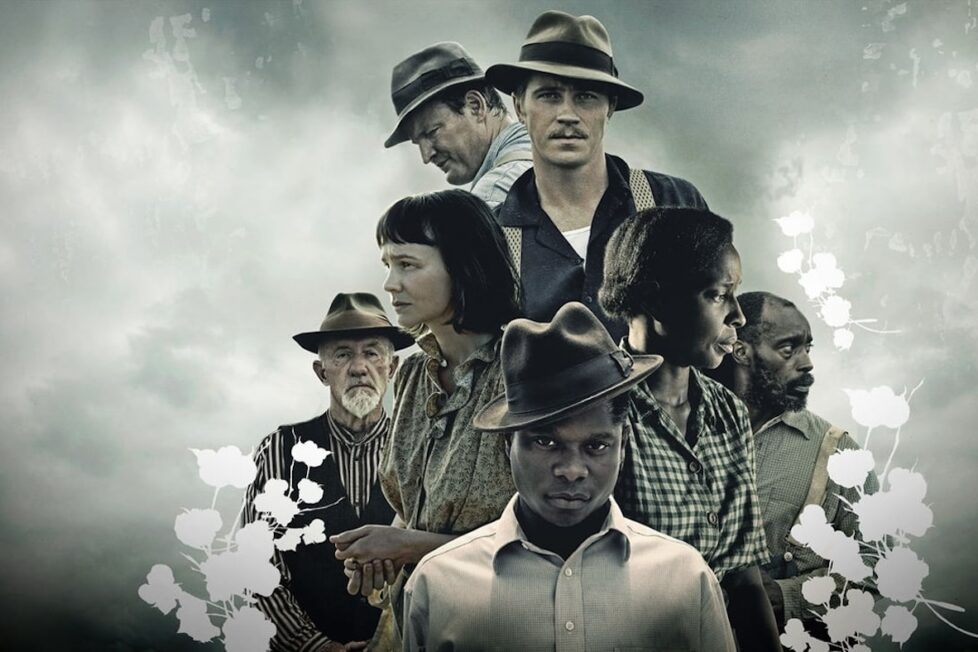
Two men return home from World War II to work on a farm in rural Mississippi, where they struggle to deal with racism and adjusting to life after war.


Taking place amidst the upheavals of World War II, Henry McAllan (Jason Clarke) is an ambitious engineer who desires to provide for his family. Alongside his wife Laura (Carey Mulligan), he jumps at the opportunity to purchase a plot of land in the Mississippi Delta. Joined by his charismatic brother Jamie (Garrett Hedlund) and his belligerent father Pappy (Jonathan Banks), the McAllans uproot from their bourgeois luxuries in Memphis and move to a ramshackle farm in the South. However, Henry’s obsession with farming is more informed by agricultural books and wishful thinking than by practical experience. As he struggles to run a successful business amidst imperfect weather conditions, the McAllans’ lives intersect with a family of sharecroppers with a history that extends back to slavery.
Nearby live the Jacksons, a family of farmers whose dream is to one day own the land they’ve tirelessly cultivated. Hap (Rob Morgan), striving to offer his children a better future, grapples with both meagre income and the weight of persistent racial oppression. Alongside his wife Florence (Mary J. Blige), they’ve raised their family and worked this land for generations.
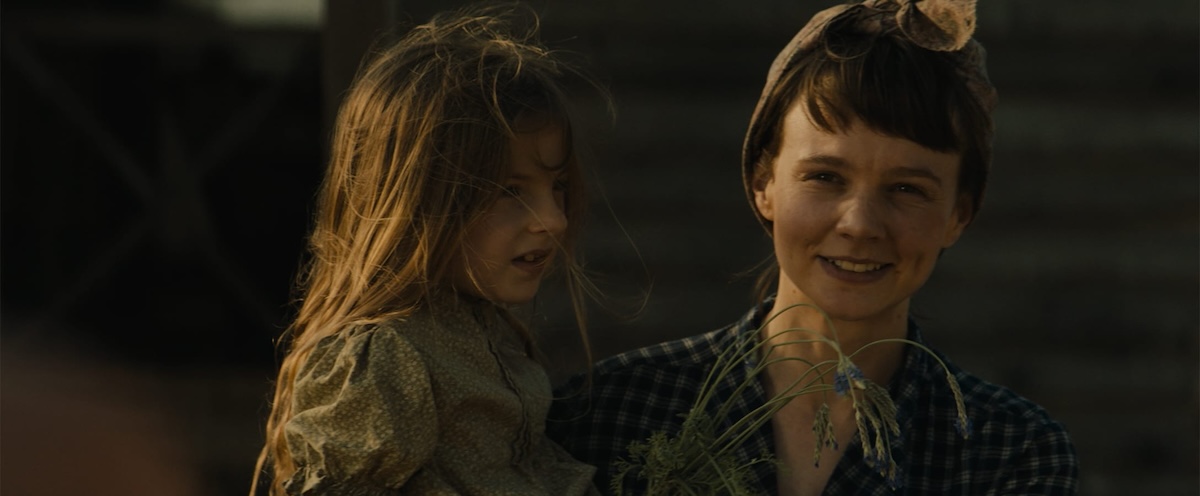
Facing shared struggles of hardship and poverty, Hap develops a tentative connection with Henry. Despite their own difficulties, the two families offer each other reluctant help when possible. Like their neighbors, they too sent their eldest son Ronsel (Jason Mitchell) to serve his country in Europe. However, upon his return to his Mississippi home, the stark reality of segregated America clashes violently with the life Ronsel experienced overseas.
This story of two families, united by unusual circumstances, comes to life thanks to the uniformly strong performances of the ensemble. Carey Mulligan (Maestro) delivers a masterfully complex performance as Laura, the maternal centre of the McAllan family. Initially introduced as a cultured woman with a teaching degree, Mulligan imbues her character with a relatable vulnerability after she is uprooted from her comfortable life in suburban Memphis. The sodden terrain of the farmland becomes a potent metaphor for Laura’s withering anguish. With a growing awareness of her own needs and identity, Mulligan captures every nuance of a woman struggling against societal expectations and her domineering husband. There’s a palpable sense of defeat behind her expressive eyes as she questions her marriage and her husband’s business decisions in moments of solitude.
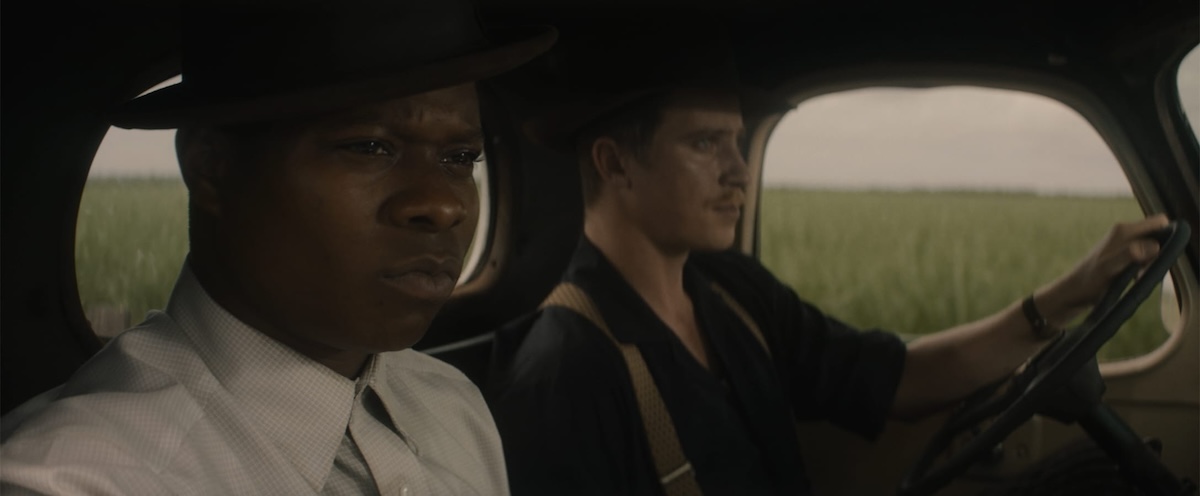
Elsewhere, Mary J. Blige (Trolls World Tour) transforms into the matriarch of the Jackson family, Florence. With reserved determination and quiet dignity, she gently watches over her family, never overplaying her simmering frustration and despair. Beneath her unassuming exterior lies a confident woman who fiercely loves her family but remains independent. Blige imbues Florence with such radiant strength that she earned her first Academy Award nomination for acting and a songwriting nomination in the same year.
Jason Mitchell (Straight Outta Compton) also delivers a nuanced performance as Ronsel, balancing charisma with subtle reticence. Despite a past marred by tragedy and misfortune, his quiet dignity reflects the character’s inner strength.
Throughout her young career, writer-director Dee Rees has fixed her cinematic gaze on America’s social, cultural, and racial heritage. Her semi-autobiographical debut, Pariah (2011), tells the story of a young writer navigating her burgeoning lesbian identity and violent family life. Meanwhile, her sophomore effort, Bessie (2015), depicts the glamorous and complicated milieu of the legendary blues performer, Bessie Smith. Mudbound represents a significant leap in both scale and ambition as the filmmaker pursues a particularly bleak period of US history.
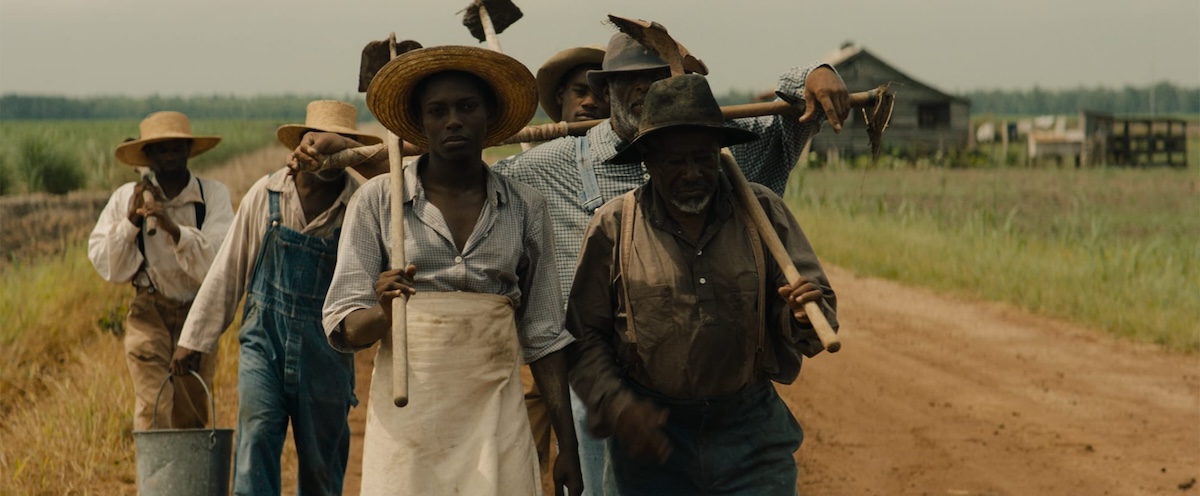
Adopting the melodramatic conventions of Southern Gothic, Rees and Virgil Williams’ (Criminal Minds) screenplay retains much of the literary value of its source material. Replicating the novelistic structure of Jordan’s original book, the shifting viewpoints and internal monologues are filtered through the main characters’ soliloquies. It’s an ambitious technique that many veteran filmmakers wouldn’t achieve. However, Rees balances the alternating voiceovers and weaves an intricate fabric of invaluable information in a fashion that’s achingly poetic and natural. The omniscient points of view paint a richer and more nuanced portrait of the characters occupying the Southern setting, allowing Mudbound to manifest as an anguished yet beautiful character study in the vein of To Kill A Mockingbird (1962) and The Heart is a Lonely Hunter (1968).
While detailing an intimate character study of two families existing along the periphery of Mississippi’s Delta bottomlands, Dee Rees delves into the silently ingrained hierarchy of systematic racism. Mudbound sheds the romanticism often associated with the bucolic Southern lifestyle, couching its commentary in the seemingly simplest interactions between characters. The tension between the McAllans and the Jacksons brilliantly illustrates how deeply institutionalized discrimination is woven into the fabric of American life.
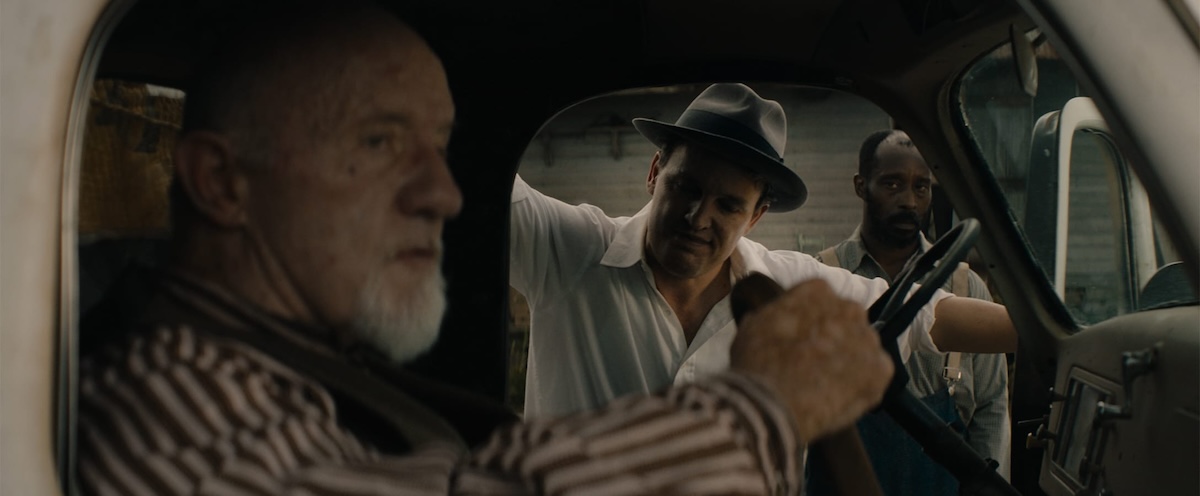
For generations, the Jacksons have cultivated the land, harbouring hope for a better future. Their labor serves as an insurance policy against Henry’s bad luck and incompetence. Beneath the surface of their cordial interactions, the social hierarchy of 1940s America dictates that the families immediately recognise their relative positions. Although unlike his father, Henry isn’t overtly violent or hostile towards the Jacksons, he wields his condescending privilege through belligerent interactions. Hap and his family consistently avert their gaze and speak deferentially when the McAllans abuse their authority. For example, when Henry demands assistance unloading his truck, he barks, “We need to get unloaded. Get a fire on, before it’s dark, okay?” Even though generations have passed since slavery’s legal abolishment, the advantages enjoyed by white Americans have always been predicated on the oppression of African Americans.
Where Mudbound distinguishes itself from many other contemporary tales of domestic racism is by exploring the idyllic world that could have been. Through the unlikely friendship between Jamie and Ronsel, Rees examines how superficial differences belie human experiences and common emotions.
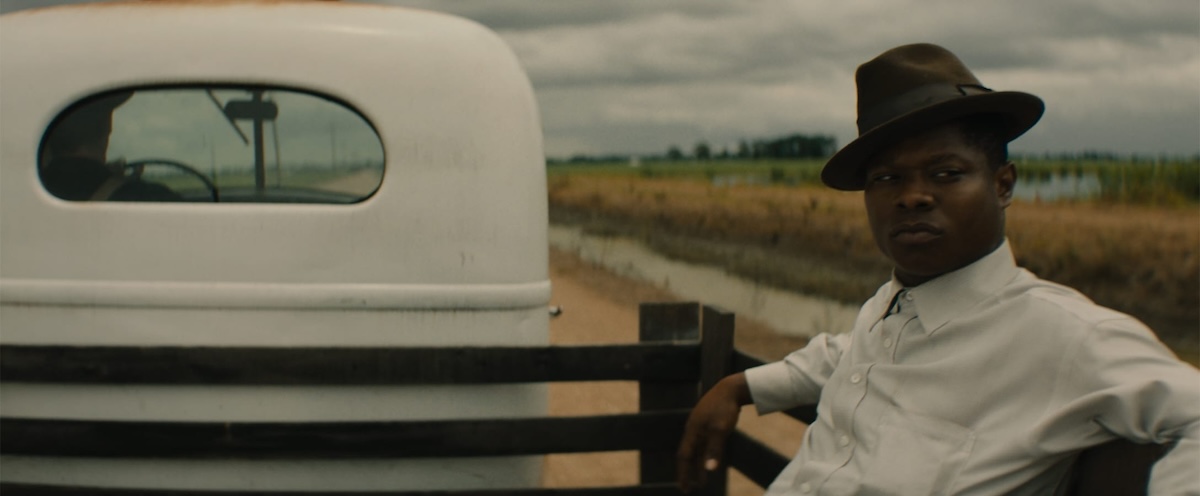
During a period when many Southern states enforced segregation, interracial relationships could potentially threaten a community’s social structure. However, the decorated veterans of each family are bound by a shared anguish nobody could understand. Jamie returns to Mississippi haunted by his experience serving as an Air Force Pilot. He is psychologically scarred by the conflict’s abject senselessness and self-medicates his severe post-traumatic stress disorder with alcohol.
Whereas Ronsel returns to his country with heavy reluctance after serving in the 761st Tank Battalion. He was treated with dignity and respect overseas, experiencing a freedom his homeland couldn’t offer. “Over there, I was a liberator. And here, I’m just another n***** pushing a plow,” he mutters.
Neither Jamie nor Ronsel feels adequately prepared to assimilate back into their old lives and develop a camaraderie anchored by their shared experience. They drink copious amounts of alcohol while recounting their time overseas battling Japanese and German forces on the front lines. It’s during these moments when their gradually blossoming solidarity promises a newfound perspective for a backward community defined by racism. Unfortunately, their unconventional partnership only provokes Pappy’s furious bigotry and creates a pathway to a horrific concussion.
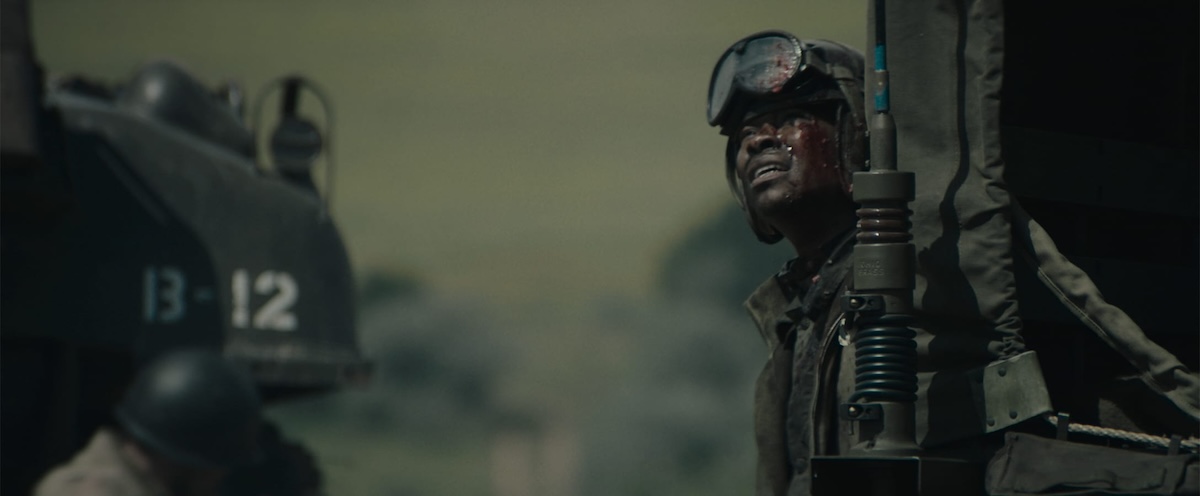
Throughout the 134-minute runtime, Rees builds the encroaching dread at a deliberate and almost operatic pace, eventually culminating in a horrifying display of grievous injustice. The devastating reality of such racial prejudice is infuriating to contemplate, and Rees never shies away from depicting its harsh realism. However, the filmmaker’s contemporary parable offers a glimmer of optimism that feels particularly compelling as white nationalists continue to march the streets of America. With a shared understanding of the human experience and the recognition of our similarities, there might indeed be hope for America’s future.
Anchored by compelling performances and compassionate storytelling, Mudbound is a powerful historical melodrama that examines the familiar brutalities of the American South. Dee Rees succeeds in exposing the country’s ingrained and institutionaliSed racism via a provocative and unapologetic depiction of African Americans’ affirmation. Although the narrative structure occasionally threatens to run away from itself, the controlled direction provides a focused trajectory. After establishing herself as a promising newcomer, Mudbound catapulted Rees as a master filmmaker and received three Academy Award nominations. It’s a bold and intimate work that resonates well beyond its historical period.
USA | 2017 | 134 MINUTES | 2:39:1 | COLOUR | ENGLISH

The Criterion Collection presents Mudbound on Blu-ray with a remarkable 1080p transfer. Sourced from a 2K master provided by Netflix, it’s presented in its original aspect ratio of 2.39:1. Despite the brutal subject matter, Rachel Morrison’s (Black Panther) cinematography is utterly exquisite. There’s a lyrical, dreamlike quality to Mudbound’s aesthetic that echoes Terrence Malick’s Days of Heaven (1978). Shot entirely in Louisiana and making use of the remaining plantation houses of the era, each composition beautifully evokes a rural world. The high dynamic range and strong black levels ensure the golden shimmer of sunlight looks stunning, while the earthy tones remain wonderfully saturated and rich. The levels of detail are also sublime, and viewers will appreciate the transfer’s ability to clearly showcase even the finest of textures. Individual patterns and clothing threads are easily discernible.
Presented with an English DTS-HD 5.1 audio track and optional subtitles, Mudbound sounds rich and pleasing throughout. Tamar-Kali’s (The Assistant) beautiful score is wonderfully reproduced, with the composer’s haunting strings and melancholic melodies being well-balanced and sweeping across the soundstage during key moments. Unfortunately, the film lacks hugely aggressive sound effects, but the subwoofer is well-utilised during a handful of sequences, including the opening shot in a rainstorm and several wartime scenes. The gentle dialogue is effectively discernible and dispersed primarily at the front centre channel, capturing every slur, stutter, and nervous audible tick with exceptional accuracy. While Mudbound might not push sound systems to their limits, it’s an exceptional dramatic soundtrack that delivers what’s required with astonishing ease.

director: Dee Rees.
writers: Dee Rees & Virgil Williams (based on the novel by Hillary Jordan)
starring: Carey Mulligan, Jason Clarke, Garrett Hedlund, Jonathan Banks, Rob Morgan, Mary J. Blige & Jason Mitchell.
